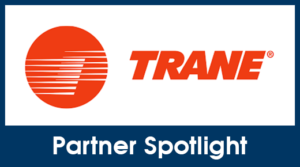 Customer Stories
Customer Stories
Challenge
The Park View Early Learning Center in Mount Prospect, Illinois, had not been renovated since its 1965 construction, and the school’s older heating, ventilation and air conditioning (HVAC) system had outlived its heyday. The school’s outdated infrastructure system also failed to align with the district-wide commitment to sustainability. Well past its prime, the building’s HVAC system was proving unreliable, impeded building comfort and provided a less-than-ideal learning and working environment. The system also was proving increasingly costly to operate and maintain.
Leaders at River Trails School District 26 planned to renovate the building to house the suburban Chicago district’s kindergarten and preschool students, as well as district administration. District leaders wanted to create the best possible learning and working environment for the building, optimizing indoor air quality and ensuring consistent building comfort. The redesigned building would be called Prairie Trails School.
Multiple district success stories already reflected the district’s commitment to sustainability. Three of the district’s four facilities had already earned ENERGY STAR® certification, and the district’s middle school had been awarded the U.S. Department of Education’s Green Ribbon School Award in 2015. The district also had already exceeded its U.S. Dept. of Energy Better Building Challenge by 2026 goal, achieving a 23 percent reduction in energy consumption, 11 years ahead of schedule.1
Still, two referendums to fund renovating Park View Early Learning Center had failed to pass. Unsure how long systems would last in the existing building and needing renovated space to meet the needs of key programs, the district was ready to update the building.
Solution
Working with Trane®, the district explored various funding options and ultimately selected a $2 million grant opportunity with the Illinois Clean Energy Community Foundation (ICECF). The grant required transforming the facility to a net-zero building.
As part of completing the grant application requirements, Trane collaborated with the district’s project team to help the district identify ways to make the building meet net zero-energy consumption requirements and Passive Housing Institute US, Inc. “plus” (PHIUS+) standards.
A net-zero energy consumption building uses a total amount of energy annually that is equal to or less than the amount of renewable energy created onsite. PHIUS+ is a “high-performance building standard” that challenges the building industry to construct buildings that can maintain a comfortable indoor environment with very low operating energy.2 Buildings that meet the PHIUS+ standard use 40-60 percent less energy for space conditioning than conventional buildings.3
Energy Conservation Measures: Selected energy conservation solutions included a photovoltaic solar panel system on the roof designed to offset 100 percent of the building’s annual electricity consumption. Trane provided the option to purchase the solar equipment through Omnia Partners®, a premier cooperative purchasing organization for K-12 education which enabled district leaders to streamline the procurement process and minimize costs.
The project team also selected a new dedicated outdoor air system (DOAS) combined with a new highly efficient electric variable refrigerant flow (VRF) heating and cooling system with heat recovery, removing the need to rely on fossil fuels for heat. A new building automation system, accessible both onsite and remotely, was selected to provide centralized control of building systems while monitoring temperature and electrical loads.
Educational Component: In alignment with the district’s commitment to sustainability education, the renovation plans feature educational displays throughout the building. This includes an educational dashboard and interactive green-screen learning video on an instructive kiosk. This kiosk is designed to help students and teachers enhance their understanding of energy efficiency, renewables, and sustainability while demonstrating the building’s net-zero performance.
Grant Application Completed: Trane worked with district leaders and their project team to help submit the grant application—then all awaited the outcome. Two months later, the district was awarded pre-approval of the $2 million grant for the 29,000-square-foot renovation. Long-term retention of the grant funding is contingent upon the district demonstrating 12 consecutive months of net-zero energy performance post-renovation. Having obtained approval on the initial grant funding, the project team launched the renovation in 2020.
Results
The majority of the construction was completed in early 2021. The renovated building—which was re-named Prairie Trails School upon completion—is Mount Prospect’s first net-zero facility. The building is on track to save more than $32,000 a year in annual gas and electricity costs while offering optimized indoor air quality and reliable, energy efficient performance.
Prairie Trails School now houses 10 kindergarten and four pre- kindergarten classrooms, and space for music and art. The building also features a “natural” playground that allows teachers to incorporate the outdoors into their curriculum.
The building’s solar panels, combined with other energy saving design elements, are successfully offsetting the building’s annual electricity consumption. While sufficient time has not yet passed to demonstrate a full 12 months of net-zero energy consumption, the district is confidently progressing toward meeting that goal.
1. Better Buildings, U.S. Department of Energy, River Trails School District 26
2. River Trails School District 26 is Awarded a Net Zero Energy Grant of up to $2,000,000, March 4, 2020
3. PHIUS.org, About PHIUS
